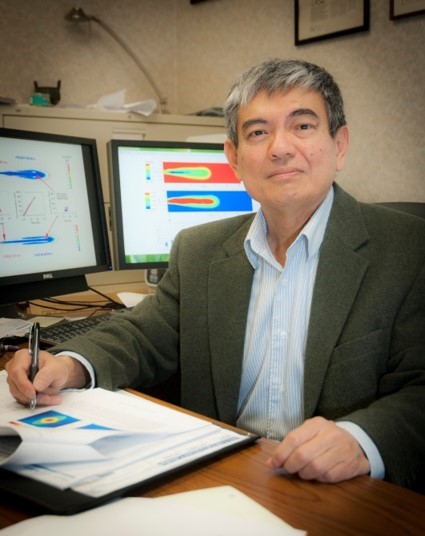

题 目:Multicomponent Evaporating Sprays and Combustion with Surrogate Fuels
时 间:2018年5月17日14:00-15:00
地 点:80足球直播吧 F210
邀请人:齐飞教授(内燃机研究所)
Biography

Dr. Chen is currently the Tang Junyuan Chair Professor and Associate Dean for Academic Affairs at the University of Michigan-Shanghai Jiao Tong University Joint Institute (JI) in Shanghai, China. He was the Chair and Professor of Chemical and Materials Engineering at the University of Alabama till 2014. After his Ph.D. from Michigan State University in Chemical Engineering, Dr. Chen was a Research Scientist at NASA’s Marshall Space Flight Center between 1984 and 1987. Dr. Chen has led more than thirty research projects funded by NASA, US Air Force, US Army Strategic Defense Command, NSF, DoE, and industries including British Petroleum, Cray Research, Rockwell International, among others. He has been recognized for his research contributions by NASA Technical Innovator Awards (twice), NASA Group Achievement Award, AIAA Outstanding Young Aerospace Engineer of the Year Award, the National Research Council Resident Research Award. Dr. Chen is an Honorary Fellow of Australian Institute of High Energetic Materials, a Fellow of American Society of Mechanical Engineers (ASME), and an Associate Fellow of American Institute of Aeronautics and Astronautics (AIAA).
Abstract
In liquid fueled combustion systems such as gas turbine combustors, gasoline direct injection, and diesel engines, combustor performance depends strongly on the fuel type, liquid atomization, spray vaporization, mixing process, and the resulting combustion. In this talk, we will present a systematic approach to achieve the overarching goal of high fidelity spray combustion simulation capability. We start with surrogate fuel development that can mimic thermo physical, chemical and kinetics characteristics of real petroleum derived fuels. We then follow with the study involving single droplet heating, evaporation and ignition utilizing the validated surrogate fuels. Transport phenomena associated with finite thermal conductivity/mass diffusivity of multicomponent within liquid fuel droplet is emphasized by utilizing an atomization model accounting for the liquid turbulence effect. Results of two-way coupled evaporating sprays and combustions will be presented and discussed.
